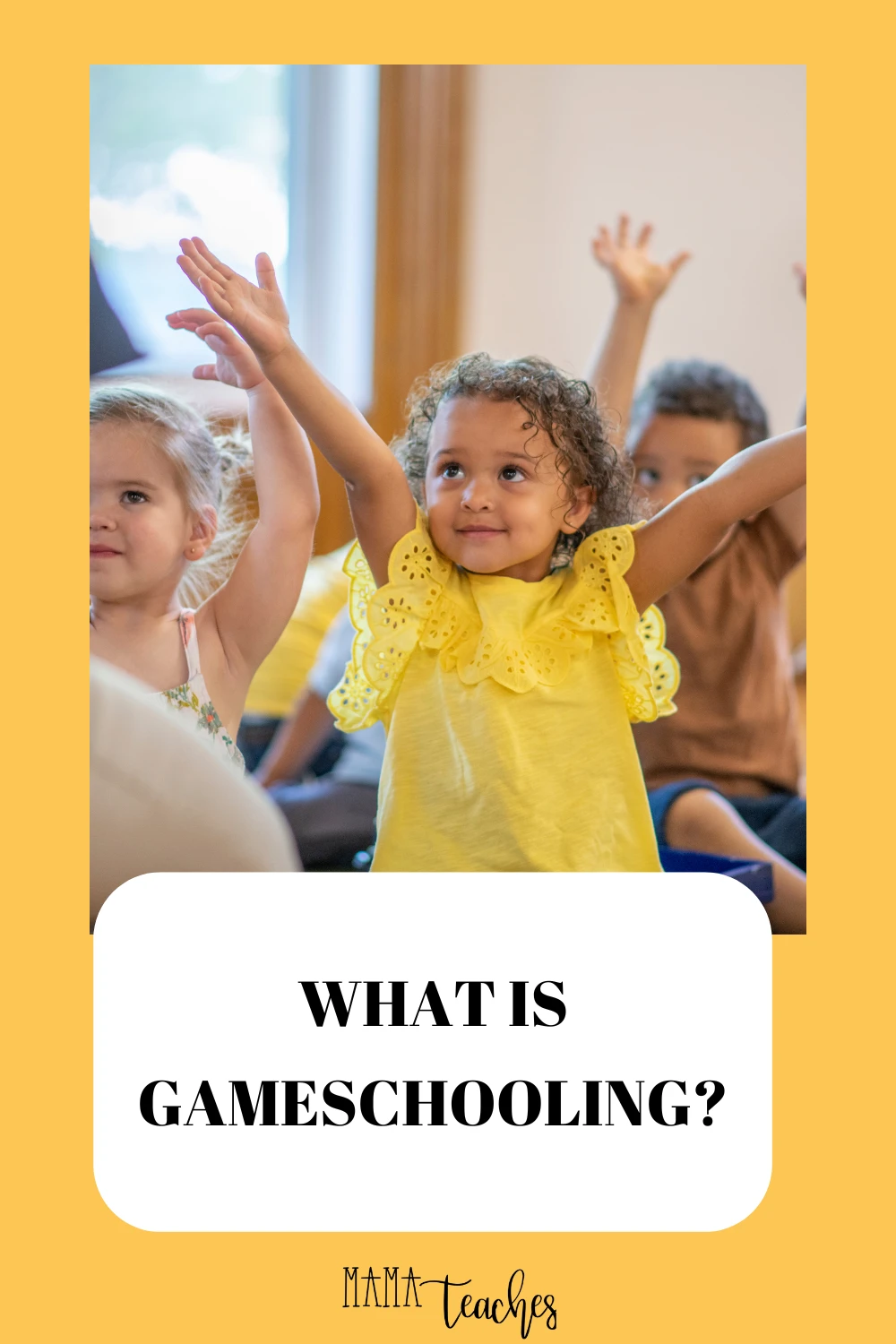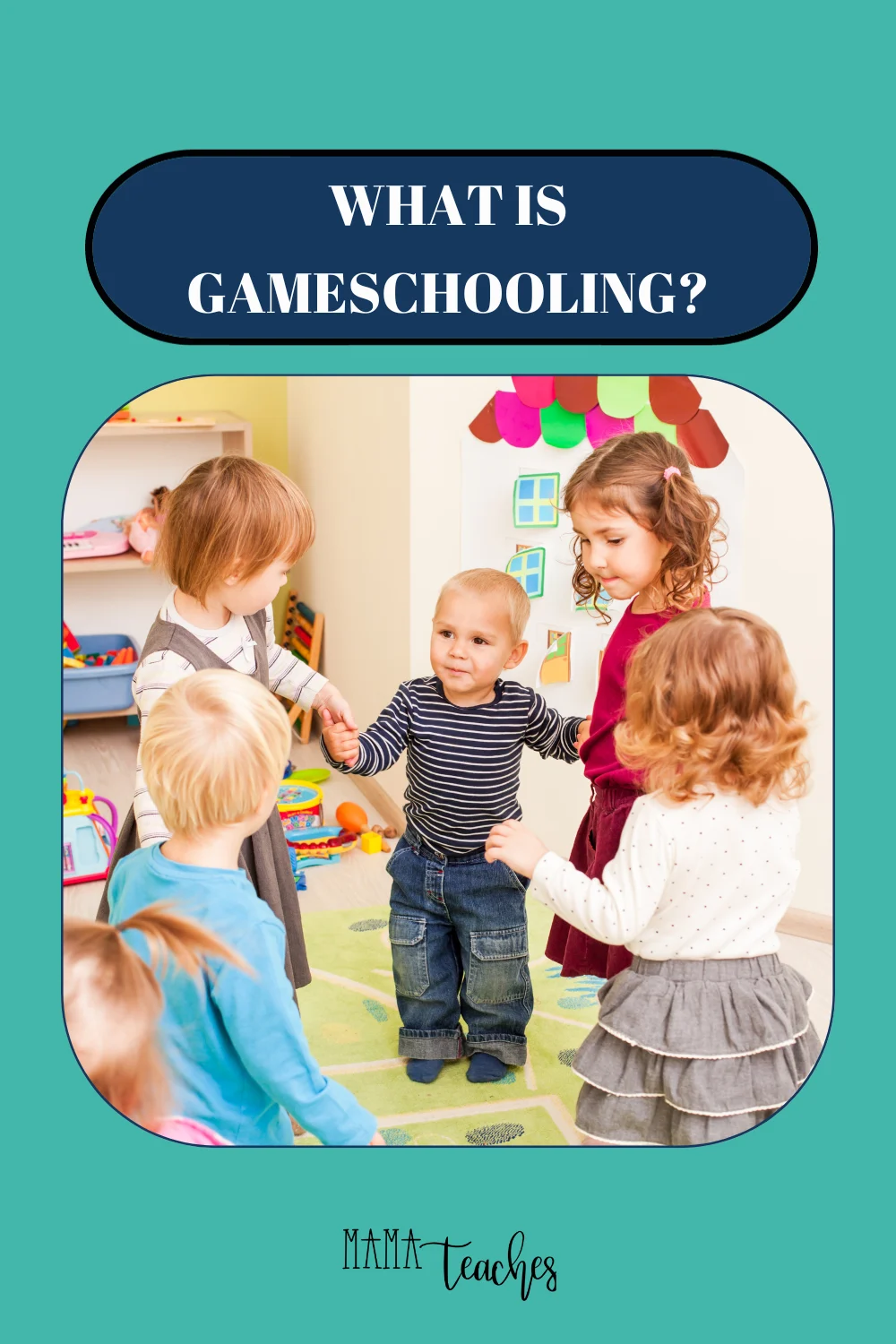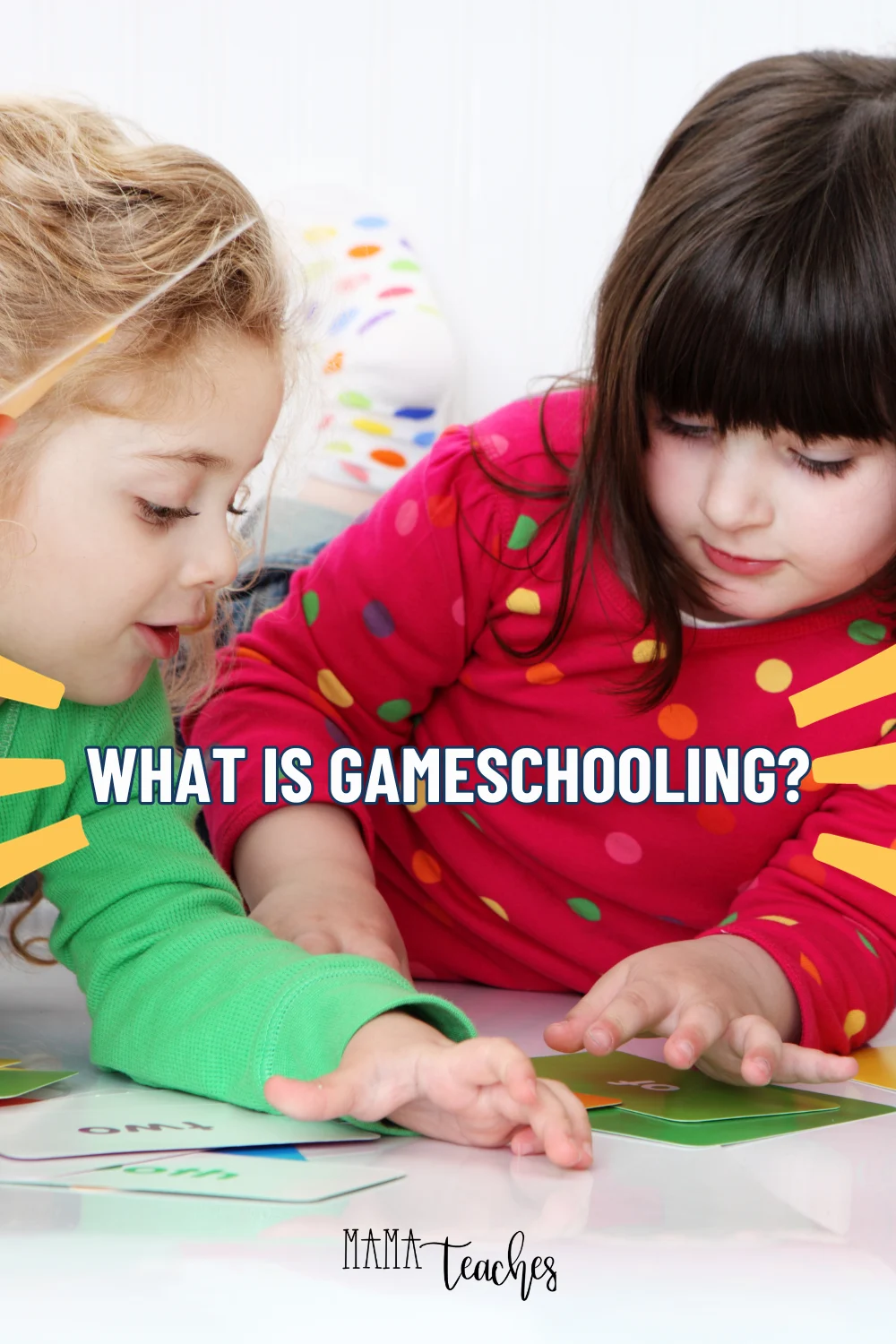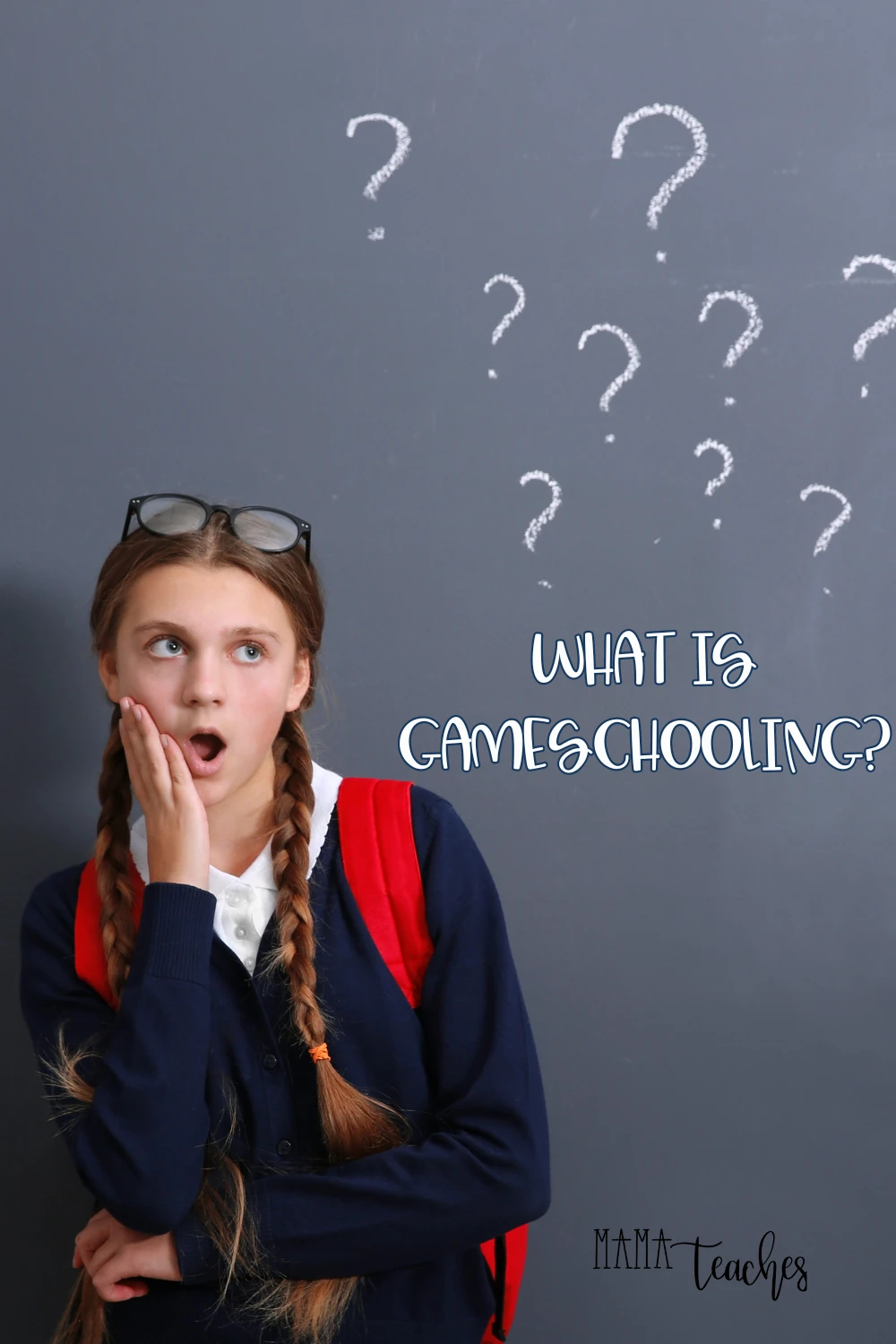Set aside the workbooks, textbooks, and number two pencils. Find out how your child can learn through play with gameschooling.

What Is Gameschooling?
Play specialist O. Fred Donaldson said, “Children learn as they play. More importantly, in play, children learn how to learn.”
Play is a valuable, even vital, way to learn.
In gameschooling, play becomes the center of your homeschool (or should I say game school?).
Board games, card games, file folder games (and, in some cases, video games) are your primary instructional materials.
There are three ways to approach gameschooling.

This article contains affiliate links to things that you might like.
Games Are the Teacher
In this child-led model, you stock your home with educational games and let the child pick the games to play.
Like in unschooling, you look for incidental moments of teaching.
Did your child pick a game that involves a math skill she doesn’t yet possess? To play the game, she will need to learn it.
Moreover, she will want to learn it.
By playing the game, she will use the skill.
That’s the beauty of gameschooling.
Games Are the Reinforcer
In this parent-led model, the parent chooses the topic or goal and provides games that fit the bill.
The child may still select the game, but it is from parent-provided options.
For example, the parent may choose to focus on US Geography. That parent purchases assorted games that teach or reinforce that subject.
Games Are the Supplement
In this model, games are one component of the homeschooling curricula but do not provide the entire instruction.
Families use books and workbooks, but they use games as regular hands-on practice and review.

Why Games Are Important
Albert Einstein said, “Play is the highest form of research.”
There are numerous academic, personal, and social benefits to playing games.
Kids Learn Academic Skills Enthusiastically
Children might moan and groan about a math or spelling lesson, but all children love to play games.
Game school is always 100% fun and games, so kids are eager to participate.
Through games, children can learn new concepts and review previous concepts—no formal assessment is required.
Kids Learn Creativity and Critical-Thinking Skills
Games teach problem solving and critical thinking skills. Kids learn to think logically and strategically.
Creative games like Charades and Pictionary encourage out of the box thinking.

Playing Games Frees Children from Fear of Failure
Games are for fun, not for grades.
This ratchets down anxiety and frees children from the fear of failure.
Playing Games Develops Communication Skills
Taking turns, practicing sportsmanship, and asserting yourself when necessary all help children develop positive communication skills.
Playing Games Helps with Emotional Regulation
You can’t win every game. When children play a lot of games, they learn the necessary self-control to be gracious in every win and sanguine in defeat.
Families Bond by Playing Games Together
In this day and age, everyone is absorbed by their devices.
By contrast, board games and card games are relationship-building.
They are an opportunity for positive family interaction and quality time.

Gameschooling Games
Here are some examples of games you can you to game school.
Pictionary
Pictionary is an ideal game for gameschooling.
You can use it across multiple ages; the whole family can play.
You can tweak the Pictionary prompts to review whatever topic you are covering, from science to music to history.
Charades
Charades is another fun and flexible game for gameschooling.
You can try it out during the holidays with this free printable Christmas Charade Game.
It’s the perfect way to homeschool during the holidays!
Trekking Through History
This history game features 108 historical events, characters, and a timeline.
Not only do kids learn history, but they also learn Roman numerals, basic math, and strategy.

Adsumudi
This fast-paced mental math game has adjustable levels so kids of different math abilities can play together.
It is a fast and creative mental math game.
Word Teasers
This box of conversation starters will get families sharing and laughing.
This game expands and reinforces vocabulary. It features the pronunciation and definition of various words.
The game comes in sets for elementary all the way up to high school (for SAT prep).
The World Game
This flexible geography game teaches countries, capitals, and flags.
You can use parts of the game as flashcards or play the game with the map.

Animal Letter Memory Game
While many of these games work across multiple ages, this game is targeted at prereaders.
This twist on traditional memory pairs the letters with adorable animals.
Children will quickly learn their letters through play.
Natural Science Bingo
This game features science fact cards, so children can learn about natural science by playing BINGO.
Minecraft
Some gameschoolers use video games as part of their curricula.
Perhaps the most popular educational video game is Minecraft.
This book features 400 homeschooling lessons that involve Minecraft.
Check out this article on using Minecraft for educational instruction.

Homeschooling Through Gameschooling
Gameschooling is a fun and stress-free way to teach your children.
They will learn content, strategy, creativity, and social-emotional skills through game play.
Whether you choose to use games as the core of your curriculum or as a supplement, try some of these games to create an upbeat and hands-on learning environment.
